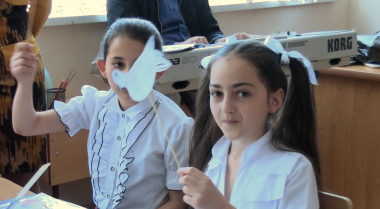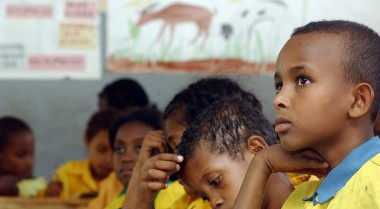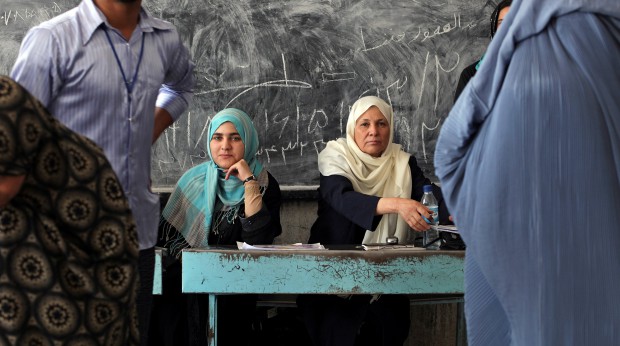
Online Course: Protection from Digital Violence by Using Critical Thinking
6-Week online course (October 12 – November 23, 2022)
Application due: October 6, 2022
Join GPPAC’s Peace Education Working Group and their special guest experts from around the world each week for the second of three, 6-week virtual/online courses for educators in a series.
Space is limited to 30!
Who should apply?
- Educators in primary and secondary classrooms
- Faculty in teacher training at teacher preparation colleges/universities or organizations
- Staff in Ministry/Departments of Education,
- Staff in International Governmental Organization who work with youth at the primary/secondary level in the field of education, or
- Staff in civil society organizations working in education at scale (country-wide or regionally).
Language: Participants will need to be proficient in English, both in writing and verbally.
Apply for consideration here: https://forms.gle/sKNorPV2FNYXbba48
Timeline:
• Applications Due October 6, 2022
• Course Begins/Access to the course – October the 12th, 2022
• Course Ends – November 23rd, 2022
Description and Overview:
This 6 -week course is designed to develop and strengthen the capacities of formal /informal educators, as well as practitioners working in the peacebuilding field to be able to apply skills needed for the protection from digital violence. It is expected that in their working environments they will work on transferring the skills, knowledge, and practical application to students and co-workers.
Participants will enhance their values formation, knowledge, and skills in order to use them in their personal and professional life. They will be in a position to support both students and colleagues to do the same, thus contributing to safe behavior online and in schools.
A complete set of 10 workshop scenarios for teaching these skills in the classroom/workshop will be provided for participants who complete the course successfully. They will also receive a certificate of completion from the Global Partnership for the Prevention of Armed Conflict.
The course will be highly interactive, as we consider participants’ experiences to be precious. We learn more successfully when we analyze, discuss, and do tasks in teams. Participants may expect homework in form of individual tasks that will be posted on the Canvas platform.
The format of the course:
- Each week there will be an online workshop (90min) facilitated by lead facilitators and/or guest speakers, working in pairs;
- Interactive individual and group tasks;
- Homework – assignments in the form of reading, written tasks and Q/A quizzes;
- Consultancies with facilitators via Canvas - Facilitators will available once a week live online, time will be agreed with participants;
- Final task: Create a plan of activities that you will be able to implement in your work settings.
- Sample resources will be shared throughout the course.
Topics covered include:
- Critical Thinking
- Protection from Digital Violence
- Media manipulations
- Emotions vs facts
- Personal and group Identity
All students are required to complete weekly assignments to remain in the course. Students will be required to complete the final project in order to receive the certificate of completion from the Global Partnership for the Prevention of Armed Conflict.
Technology Needed:
- Computer/Tablet or Phone with Camera and Microphone enabled.
- WiFi strong enough to participate in live discussions using Zoom technology and to watch videos.
Questions? Contact the GPPAC PEWG at: gppacpeaceedcourses@gmail.com
Facilitators:
Tatjana Popović holds MA in Peace Studies from the Faculty of Political Sciences, University of Belgrade and is a certified mediator. She is a director of Nansen Dialogue Centre Serbia and an experienced trainer within the conflict transformation field. She facilitated, over the last 20 years, a number of inter-ethnic dialogue seminars for teachers, ministries of education advisors and local authorities representatives in the Western Balkans, thus contributing to cross-border cooperation and reconciliation. The focus of her facilitated trainings is on Dialogue and Communication, Interactive Teaching Methodologies and Teamwork; Conflict Analysis Tools, Negotiation and Mediation. Facilitating trainings for trainers with international groups in Norway, in the UK, and in Turkey enriched her experience significantly. Her skills include creating programmes, planning long-term peacebuilding strategies and drafting policy papers. She also worked on school mediation as a conflict prevention and resolution mechanism by establishing school mediation clubs in multi-ethnic schools in South Serbia and in Vojvodina.
Biljana Lajovic is a Psychologist, Education Specialist, REBT Psychotherapist. She is retired from the Ministry of Education, Science and Technological Development – Republic, as the Coordinator of The Unit for Violence Prevention. In her advisory role, she was a Senior Advisor to the Minister of Education, at the Ministry of Education, Science and Technological Development of the Republic of Serbia. Throughout her career, she worked in the field of child and youth protection and the creation of of safe and supportive learning environments for children. Biljana participated in numerous projects and programmes focused on the topics of the Prevention of violence among children and directed to children, Peaceful Conflicts Resolution and Prevention of Violent Extremism.
Guest speakers:
Primary School Teachers
Sladjan Petrovic Djusa and Goran Ledenčan (Serbia)


